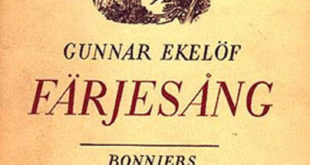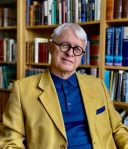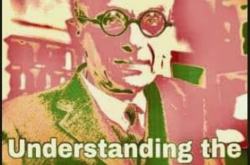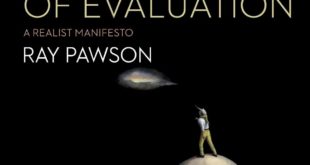Jag tror på den ensamma människan Jag tror på den ensamma människan, på henne som vandrar ensam, som inte hundlikt löper till vittring, som inte varglikt flyr för mänskovittring: På en gång människa och anti-människa. Hur nå gemenskap? Fly den övre och yttre vägen: Det som är boskap i andra är boskap också i dig. Gå den undre och inre vägen: Det som är botten i dig är botten också i andra. Svårt att vänja sig vid sig själv. Svårt att vänja sig av med sig...
Read More »The 20 Best Econometrics Blogs and Websites
The 20 Best Econometrics Blogs and Websites Yours truly, of course, feels truly honoured to find himself on the list of the world’s 20 Best Econometrics Blogs and Websites. 1. The Stata Blog 2. Bruno Rodrigues 7. Eran Raviv Blog Statistics and Econometrics 9. How the (Econometric) Sausage is Made 14. Lars P Syll Pålsson Syll received a PhD in economic history in 1991 and a PhD in economics in 1997, both at Lund University. He became an associate professor...
Read More »The Keynes-Ramsey-Savage debate on probability
Mainstream economics nowadays usually assumes that agents that have to make choices under conditions of uncertainty behave according to Bayesian rules, axiomatized by Ramsey (1931) and Savage (1954) — that is, they maximize expected utility for some subjective probability measure that is continually updated according to Bayes theorem. If not, they are supposed to be irrational, and ultimately — via some “Dutch book” or “money pump” argument — susceptible to being ruined by...
Read More »Tuesday afternoon
.[embedded content]
Read More »Econometric modeling and inference
Econometric modeling and inference The impossibility of proper specification is true generally in regression analyses across the social sciences, whether we are looking at the factors affecting occupational status, voting behavior, etc. The problem is that as implied by the three conditions for regression analyses to yield accurate, unbiased estimates, you need to investigate a phenomenon that has underlying mathematical regularities – and, moreover,...
Read More »‘Vår ekonomi’ — nationalekonomisk lärobok med stora brister
‘Vår ekonomi’ — nationalekonomisk lärobok med stora brister Varje höst håller your truly sedan fler år tillbaka en introduktionskurs i nationalekonomi för blivande gymnasielärare i samhällskunskap. Förutom några av mina egna böcker, står även Klas Eklunds Vår ekonomi på litteraturlistan. Vår ekonomi kom år 2020 ut i sin senaste (15:e) upplaga. Imponerande och i sig ett bevis på bokens många förtjänster, inte minst de pedagogiska. Men tyvärr har boken...
Read More »Economics — an axiomatically based science doomed to fail
Economics — an axiomatically based science doomed to fail A modern economy is a very complicated system. Since we cannot conduct controlled experiments on its smaller parts, or even observe them in isolation, the classical hard-science devices for discriminating between competing hypotheses are closed to us. The main alternative device is the statistical analysis of historical time-series. But then another difficulty arises. The competing hypotheses are...
Read More »How mainstream economics treats us all as criminals
How mainstream economics treats us all as criminals For most mainstream economists a model is just a model and there are many models. Norms only enter into the picture in terms of clearly stated and testable components of models and models provide a means to explore the scope of theory. In principle, policy advocacy is supported by model findings and as such mainstream economists tend to start from the position that their work has the rigour and clarity of...
Read More »Economics — a science in need of a realist methodology
Economics — a science in need of a realist methodology What enables and yet constrains research? What is both medium and outcome of research? What do researchers reproduce without even knowing it? What is supposed to unite researchers but may divide them? What empowers researchers to speak but is never fully articulated? What is played out in the routine of research but can never be routinised? What is the responsibility of all researchers but for which...
Read More »The loss of confidence in economists’ analyses
Ainsi, la crise de 2008 a créé la surprise dans les rangs des économistes influents, qui croyaient voir le monde entrer au XXIe siècle dans le temps de « la grande modération » – c’est-à-dire la prévention des mouvements économiques erratiques grâce au pilotage « scientifique » des politiques monétaires … Cet épisode a sans conteste révélé une défaillance sévère du savoir économique … Pourquoi cette perte de confiance envers les analyses des économistes ? Nous vivons...
Read More » Lars P. Syll
Lars P. Syll









